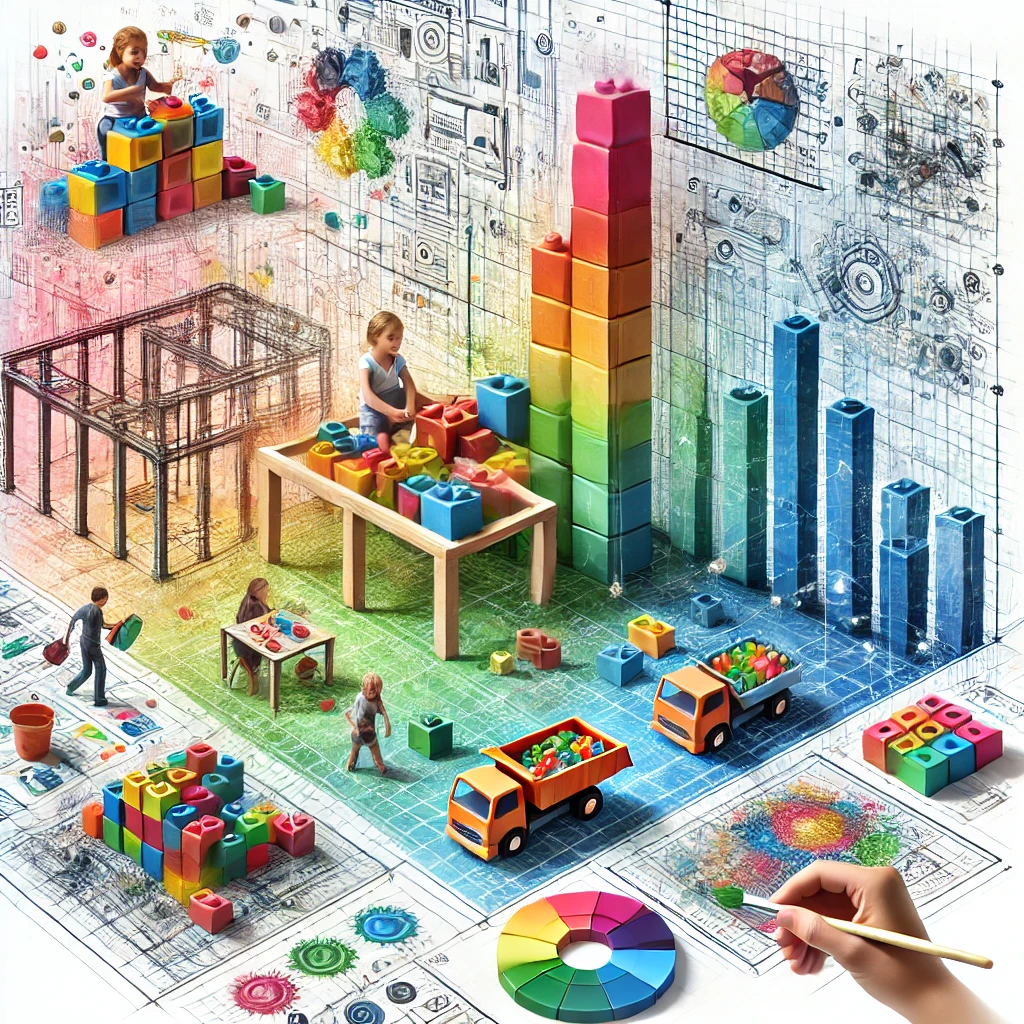The phrase "building blocks" often refers to fundamental units or components that are essential to the formation of something larger and more complex. From childhood learning to modern architecture, business, technology, and science, building blocks are the essential elements that allow us to create, innovate, and evolve. When we talk about "building blocks building blocks," we are diving into the significance of these foundational pieces in various aspects of life and development.
1. Building Blocks in Early Childhood Education
The most familiar use of building blocks comes from early childhood education. Toys like LEGO, wooden blocks, or even simple stacking pieces provide children with the opportunity to engage their imagination while developing essential motor skills, spatial awareness, and problem-solving abilities. These hands-on experiences are critical for learning how to plan, create, and innovate, laying the groundwork for cognitive development that supports later academic success.
As children build structures, they learn basic engineering principles such as balance, gravity, and support, while fostering creativity and collaboration when working in groups. Play-based learning with blocks is often considered one of the most effective ways to teach young children core skills that translate into other areas of life.
2. Building Blocks in Modern Construction
In architecture and construction, the term "building blocks" refers to the materials and techniques used to create infrastructure. Traditionally, bricks, stones, and concrete were the primary materials used as building blocks to construct homes, bridges, and skyscrapers. Today, however, innovations such as modular construction and prefabricated blocks have revolutionized the industry, making it possible to construct buildings more quickly and efficiently.
Modular construction, in particular, uses pre-made building blocks (modules) that are assembled off-site, transported to the site, and put together like a puzzle to create large structures. This method not only saves time but also reduces waste and allows for more sustainable practices.
3. Building Blocks in Business Development
In the world of business, building blocks are the key components that form the foundation of a successful enterprise. These blocks include strategic planning, financial resources, product development, customer relationships, and workforce management. Just like physical construction, building a strong, scalable business requires each component to be well-integrated and durable.
Businesses that focus on solidifying these essential blocks are more likely to achieve long-term growth and stability. The process of analyzing, strengthening, and aligning these building blocks allows businesses to weather market shifts, economic downturns, and other external challenges.
4. Building Blocks in Technology and Coding
In technology, "building blocks" refer to the foundational pieces of code that developers use to create software, websites, apps, and other digital products. Coding languages such as Python, JavaScript, and C++ provide the basic building blocks for developers to design complex systems and platforms. These individual blocks of code, when combined, form the backbone of the digital world.
Just as with physical construction, the strength of the entire system depends on how well the building blocks are structured and integrated. Developers can use libraries, frameworks, and APIs (Application Programming Interfaces) as ready-made blocks to streamline the process of coding, allowing for greater efficiency and innovation.
5. Building Blocks in Science and Innovation
In science, particularly biology and chemistry, building blocks refer to the essential components of life. For example, in biology, DNA and cells are the building blocks of living organisms, while in chemistry, atoms and molecules serve as the building blocks of matter. These foundational elements combine in intricate and diverse ways to form the world as we know it.
Similarly, in innovation and research, scientists and inventors rely on established theories and existing knowledge as building blocks for new discoveries. By building upon what is already known, they are able to develop breakthrough technologies, medicines, and solutions to global problems.
6. The Creative Process: Building Blocks of Art and Design
In the world of art and design, creativity also relies on building blocks. Whether it’s visual art, music, or fashion, every creation starts with basic elements—such as color, shape, form, and sound—that are then combined in innovative ways. Artists and designers often experiment with these fundamental building blocks to produce new and exciting works that push the boundaries of conventional thinking.
For example, in digital design, software programs like Adobe Photoshop or 3D modeling tools provide designers with a wide array of building blocks—such as templates, textures, and shapes—that they can manipulate to create intricate designs or virtual environments.
Conclusion
"Building blocks" are not limited to any one industry or field. They are universal tools for creation, innovation, and development. From a child stacking wooden blocks to a programmer writing lines of code, these fundamental units are critical to forming larger, more complex structures. Whether in education, business, technology, or science, understanding and utilizing building blocks allows us to build systems, products, and ideas that shape the future.
To buy RERA Certified & DTCP Approved Gated Community Villa Open Plots in Andhra Pradesh & Telangana please contact:
For Sales : 8179712384
Mail : sales@openplots.net
